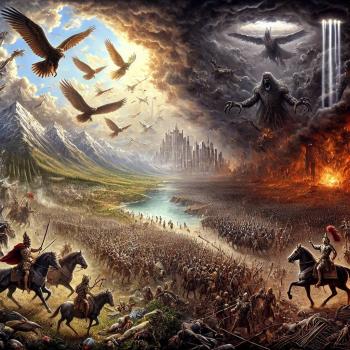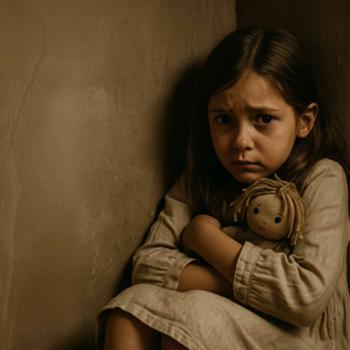We are saved not simply from something, but for something good (Eph. 2:9). In this sense, one may say that Jesus came not to abolish the Buddhist law of karma, but to fulfill it. This echoes what Jesus said, "I came not to abolish the Law or prophets, but to fulfill it" (Matt. 5:17). Jesus' grace did not totally replace the law of good karma, but to fulfill it in the sense that good karma (good ethics) may shape us better Christians. Paul said, "We will read the fruit whatever we sowed" (Gal. 6:7). If sow the good seed, we will reap the good fruit now and latter. Buddhists also believe in this way. However, their eschatological vision of overcoming the duality of good and evil is different from Christians. While Buddhists want to transcend the duality of good and evil, Christians want to overcome evil with good so that monism of good will prevail (Rom. 12:21).
Conclusion
This paper employed four theological approaches as the apologetic responses to the Buddhist doctrine of karma and theodicy. First, the monotheistic approach contrasts Buddhist doctrine of impersonal karma who is the judge of good and evil and proposes a Christian doctrine of God as a personal Creator who is the first cause of the universe. Second free-will approach argues that Adam's ill use of freedom is the result of the problem of cosmic evil, death and suffering. God is ultimately responsible for reaction to the consequence of humans' free choice of doing either good or evil karma. Third, soteriological approach demonstrates the innocent suffering of Jesus on the cross as the climax of God's theodicy. This theodicy of grace not only confronts Buddhist doctrine of karma, but also transforms it. It is through this, we must approach other sufferings.
Finally, ethical approach argues that duality is the circumstantial existence in which our struggle for good and against evil is the ethical duty of both Christianity and Buddhism.
Eschatologically, Buddhists tend to transcend the good-evil duality, whereas Christians tend to overcome evil by good. The eschatological rest for Buddhism is nirvana where there is no more good-evil duality, and Christian vision is a fulfillment of life in which good will reign and evil will be gone. This is natural for Christians because the final division of the saved and the damned lies at the heart of monotheism. But Buddhists do not see the rebirth of karma as a judgment but rather as a reward. Divine judgment is a problem for Buddhism and in their point of view, monotheism cannot solve theodicy satisfactorily. Bur for Christianity, monotheistic God is the first cause and the source and end of theodicy. In short, evil or suffering exist not because God is powerless, but because God allows it to happen, and from out of it, God of love does His justice and salvation. In other words, God uses human suffering as a channel through which God continually acts His merciful salvation of justice in the world of injustice and evil.*
*I argued this with the in-depth analysis in my article, David Thang Moe, "Sin and Evil in Christian and Buddhist Perspective: A Quest for Theodicy," in Asia Journal of Theology, Vol. 29/1 (April 2015): 22-46.




